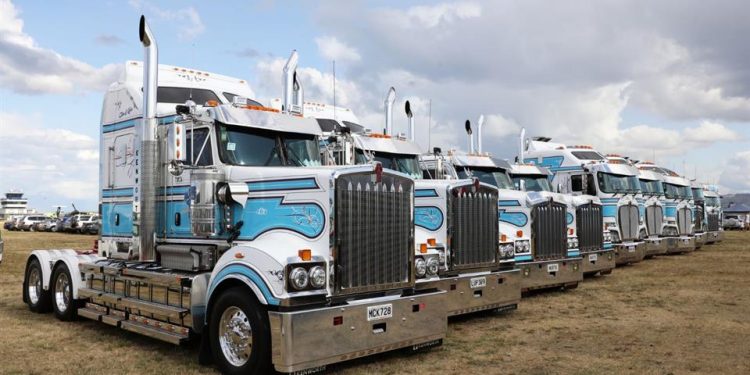Road Transport Threatened By Rail Development
The trucking industry has commissioned a report from Ia Ara Aotearoa Transporting New Zealand, favouring trucking as a form of transport at the expense of rail. Spokesperson Nick Legget points to road safety, congestion and environmental damage as second.
The trucking industry has commissioned a report from Ia Ara Aotearoa Transporting New Zealand, favouring trucking as a form of transport at the expense of rail. Spokesperson Nick Legget points to road safety, congestion and environmental damage as “second order externalities” favouring economic reality as the only real consideration.
Chair of TRAC Guy Wellwood, however, points out that, “Rail saves New Zealand $1 billion through a reduction of congestion alone, and that trucks are a major road hazard involved in 20% of all road deaths as well as a number injuries.”
Founder of TRAC Niall Robertson points out that pollution is one of the greatest challengers for the current generation and that road transport is one of the worst offenders. Robertson says: “Tyre dust is full of toxins that are poisoning our waterways and tyres also make up 40% of the particulates that come from trucks to pollute our air. Tyres also produce microplastics and are now the second greatest contributor to oceanic microplastics”.
Due to their disproportionate size and weight compared with other vehicles trucks do 99% of all road damage, require big land cobbling motorways to separate adequately from other vehicles and demand more expensive road engineering, yet motorists pay about 50% of the costs of roads through the fuel excise tax. That’s a subsidy that the road transport industry is quiet about.
Don Braid from Mainfreight once said that 24% of freight is non-urgent so should go by the cheapest way which is rail, which challenges the “12% of contestable freight” by this report.
Robertson says, “The current financial structure is flawed, with the fate of the New Zealand railway system bound to KiwiRail’s next quarter’s bottom line. There needs to be a separation of below wheel infrastructure from the company and open access to other operators in order to allow more investment in the New Zealand rail network from the private sector”.
Rail needs to grow its market share, not just for the reasons of safety, environmental protection, saving of greenhouse gases and road congestion, but also to give businesses alternative and cheaper options to get their goods to market. Rail is also poised to develop a much greater role in urban and inter-regional public transport and tourism services too.
Wellwood says, “Rail is being invested in all over the world, because it ticks all the boxes to help us deal with all of the major challenges of the present and the future”.





